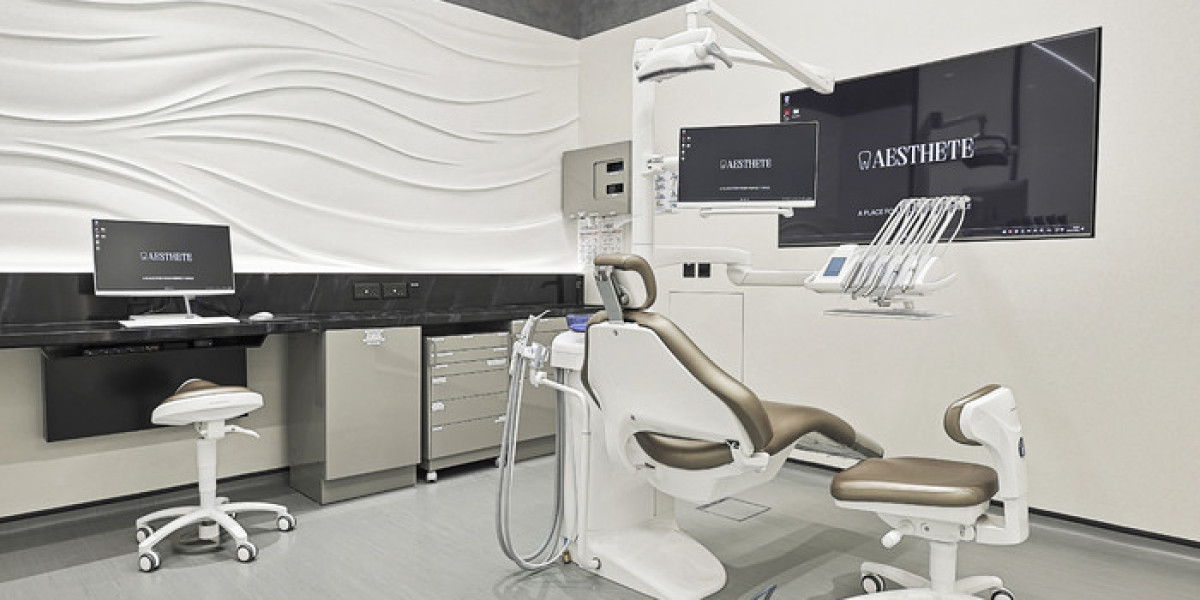The Essential Role of Oral Health in Overall Wellness
Oral health is a critical component of overall well-being, serving as a window to your general health and affecting every aspect of your life. It goes far beyond having a pleasing smile; it is vital for eating, speaking, and engaging in social activities with confidence. Neglecting oral health can lead to dental and medical issues ranging from tooth decay, gum disease, and tooth loss to more severe conditions such as heart disease, diabetes, and complications during pregnancy. Understanding the interconnectedness of oral health with the rest of the body highlights the importance of maintaining good oral hygiene and seeking regular dental care.
Brushing twice a day, flossing daily, and limiting sugary snacks and drinks are foundational steps in preserving oral health. However, these home care practices must be complemented by professional dental check-ups and cleanings to prevent, detect, and treat problems early. Regular dental visits enable the early detection of oral health issues when they are most treatable and less costly to manage.
Moreover, discussing your overall health and any changes in your condition with your dentist can provide valuable insights into potential oral health issues. For instance, certain medications can affect oral health by reducing saliva flow, which has a protective effect on teeth. By integrating oral health care into your overall health care routine, you can prevent serious diseases, achieve better health outcomes, and maintain the quality of your life.
Investing in oral health is investing in your overall health. By understanding the critical role oral health plays in your well-being, you can take proactive steps toward maintaining it. For those looking to ensure their oral health is in top condition, consulting with dental professionals who prioritize patient care and use the latest in dental technology is essential.
The Impact of Technological Advancements in Dentistry
The field of dentistry has witnessed remarkable technological advancements over the years, significantly enhancing the quality of care, patient comfort, and treatment outcomes. Innovations such as digital imaging, 3D printing, and laser dentistry have revolutionized diagnostic procedures, treatment planning, and the execution of dental procedures, making visits to the dentist more efficient, less invasive, and more comfortable for patients.
Digital Imaging and 3D Printing: Digital X-rays and 3D imaging provide dentists with detailed views of the teeth, gums, and bone structure, enabling precise diagnosis and treatment planning with minimal exposure to radiation. 3D printing technology has taken this a step further by allowing the creation of custom dental implants, crowns, and orthodontic devices directly from the digital images, ensuring a perfect fit and reducing the waiting time for patients.
Laser Dentistry: Laser technology has found various applications in dental care, from cavity detection and tooth whitening to gum reshaping and the treatment of periodontal disease. Lasers offer a less painful alternative to traditional drills and scalpels, reducing the need for anesthesia and minimizing bleeding and swelling during and after procedures.
Invisalign® and Clear Aligners: Orthodontic treatment has also benefited from technological advancements. Clear aligners, such as Invisalign®, provide a nearly invisible way to correct misalignments and improve dental aesthetics. These custom-made aligners are comfortable, removable, and designed to gradually move teeth into their proper position, offering an attractive alternative to traditional metal braces.
Teledentistry: The rise of teledentistry has made dental care more accessible, allowing patients to consult with their dentists remotely for initial evaluations, follow-up appointments, and minor issues. This innovation is particularly beneficial for patients in remote areas or those with mobility challenges, ensuring continuity of care and reducing the need for in-person visits.
These technological advancements have not only improved the efficiency and effectiveness of dental treatments but also significantly enhanced patient experiences. By reducing pain, recovery time, and the number of visits required for certain procedures, technology has made dental care more patient-friendly.
For those seeking cutting-edge dental treatments that leverage the latest in dental technology, it's important to choose a clinic that invests in these advancements and prioritizes patient care. A prime example of such a commitment to innovation and excellence in dentistry can be found at https://aesthet.ae, where patients can access a wide range of advanced dental services designed to ensure optimal oral health and aesthetic outcomes.
The Importance of Preventive Dentistry and Early Intervention
Preventive dentistry is the foundation of maintaining long-term oral health and avoiding complex dental issues. It focuses on regular care and practices that can prevent the onset of tooth decay, gum disease, and other oral health problems. Early intervention, a key component of preventive dentistry, involves addressing minor issues before they escalate into more severe problems, saving patients from discomfort and extensive treatments in the future.
Regular Check-ups and Cleanings: Routine dental check-ups are essential for early detection and management of oral health issues. During these visits, dental professionals can identify early signs of decay, gum disease, and other conditions that may not yet be causing symptoms. Professional cleanings also remove plaque and tartar build-up that regular brushing and flossing at home can't eliminate, preventing cavities and periodontal disease.
Dental Sealants and Fluoride Treatments: Dental sealants are protective coatings applied to the chewing surfaces of the back teeth, where decay often starts. Fluoride treatments help strengthen the enamel, making it more resistant to decay. Both are effective preventive measures, especially for children and adolescents, but can also benefit adults.
Education on Oral Hygiene Practices: A significant part of preventive dentistry involves educating patients on proper oral hygiene techniques, including the correct way to brush and floss. Dental professionals also provide advice on diet and lifestyle choices that affect oral health, such as limiting sugar intake and avoiding tobacco use.
Early Orthodontic Assessment: For children, early orthodontic assessments can identify misalignments and developmental issues that may affect oral health or facial aesthetics in the future. Addressing these problems early can simplify and shorten treatment, prevent complications, and result in better outcomes.
Preventive dentistry and early intervention are not just about avoiding dental issues; they're about maintaining overall health, comfort, and confidence. Oral health is closely linked to systemic health, meaning that keeping your mouth healthy helps keep your body healthy too. Conditions like gum disease have been associated with heart disease, diabetes, and other systemic conditions, highlighting the importance of oral care in maintaining general health.
By embracing preventive dentistry and seeking early intervention for dental concerns, individuals can enjoy a lifetime of healthy smiles. This proactive approach to dental care can lead to significant benefits, including improved oral health, reduced need for extensive dental work, and enhanced overall well-being.
The Psychological Impact of Oral Health on Well-being
The influence of oral health on psychological well-being and social interactions is profound and often underestimated. A healthy, appealing smile can significantly boost self-esteem, confidence, and the willingness to engage in social activities, whereas dental issues can lead to insecurity, social withdrawal, and even depression. The psychological impact of oral health extends beyond aesthetics, affecting various aspects of life, from personal relationships to professional opportunities.
Self-Esteem and Confidence: A bright, healthy smile can dramatically enhance an individual's self-image and confidence. People who are proud of their smiles are more likely to engage in conversations, smile openly, and exude a positive demeanor. Conversely, those who are self-conscious about their dental appearance might avoid smiling or speaking freely, which can be misinterpreted as unfriendliness or lack of confidence.
Social and Professional Interactions: First impressions are crucial in social and professional settings, and a smile is often one of the first things noticed. Dental issues can affect speech and the ability to communicate effectively, potentially hindering job opportunities or social relationships. On the other hand, a healthy smile can enhance personal and professional interactions, contributing to a more positive and successful social life.
Mental Health: The stress and anxiety associated with dental problems can take a toll on mental health. Chronic dental pain, discomfort, or dissatisfaction with one's oral appearance can lead to increased stress levels, anxiety, and even depression. Furthermore, individuals with visible dental issues may experience social anxiety or fear of judgment, exacerbating feelings of isolation or low self-worth.
Quality of Life: Ultimately, oral health significantly impacts overall quality of life. The ability to eat comfortably, speak clearly, and smile without embarrassment contributes to physical health, psychological well-being, and social engagement. Those who maintain good oral health are more likely to enjoy a higher quality of life, with fewer limitations on their daily activities or interactions.
Recognizing the psychological impact of oral health is crucial for encouraging proactive dental care and addressing dental issues promptly. Dental professionals play a key role in not only treating oral health problems but also in providing support and guidance to help patients overcome insecurities related to their dental health. By prioritizing oral health, individuals can improve their psychological well-being, enhance social interactions, and embrace life with confidence and a smile.
Embracing a holistic approach that considers the emotional and psychological aspects of dental care can transform lives, underscoring the importance of oral health in achieving overall well-being and happiness.















